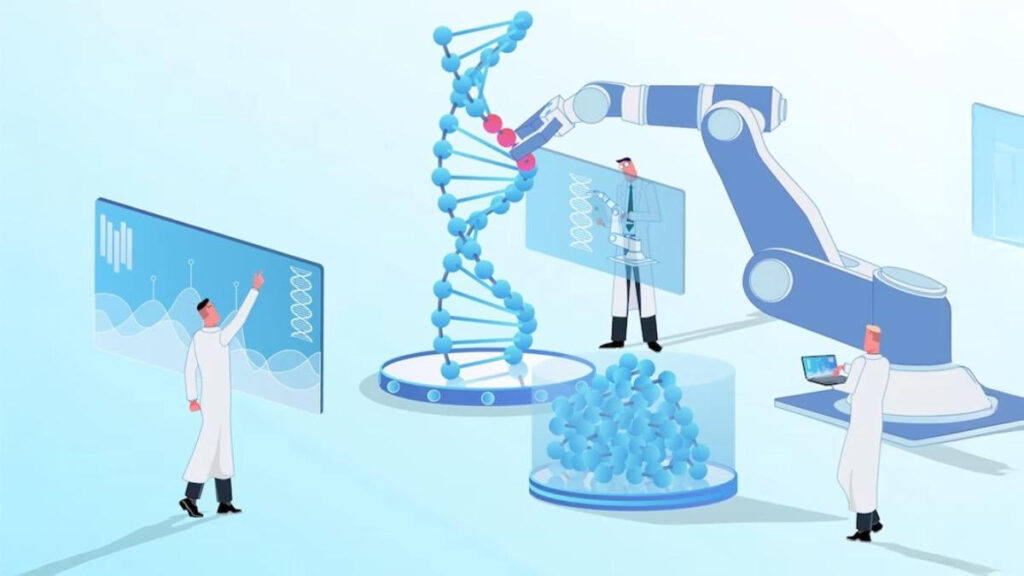Precision medicine is an innovative approach that tailors treatment to the unique genetic and molecular characteristics of a patient’s cancer. Learn how this innovative approach improves outcomes, reduces side effects, and brings hope to cancer patients.
Vithala, an 80-year-old gentleman, walked into my office one sunny day. After a month of persistent cough, he was diagnosed with stage four lung cancer,”
“When his family came to us, they were resolute about not opting for chemotherapy. I reassured them and spoke about the promise of precision medicine and customised cancer care. We sent his biopsy block for mutation analysis, and within a week, the results brought good news; he didn’t need chemotherapy. Instead, he would respond to targeted therapy in the form of tablets,” shared
This is the power of modern medicine, where solutions exist beyond what we could imagine even a decade ago. Today, this approach has become the standard of care for lung, breast, and prostate cancers. With every passing year, research introduces new molecules for different cancers, transforming cancer care. Cancer is no longer a death sentence.
What is Precision Medicine?

Precision medicine is an innovative approach that tailors treatment to the unique genetic and molecular characteristics of a patient’s cancer. Unlike conventional ‘one-size-fits-all’ treatments, which rely on generalised protocols, precision medicine identifies specific genetic mutations driving the disease to recommend the most effective therapies,” said Dr Vijayakumar.
According to the University of California- Davis Health (UC Davis), precision medicine considers individual variations in genetics, environments, and lifestyles to tailor treatments. This approach enables doctors to design therapies based on a comprehensive understanding of a patient’s condition.
For example, two patients with the same type of cancer like lung cancer may require completely different treatments based on their genetic profiles. This personalised approach ensures improved outcomes, fewer side effects, and a better quality of life for patients.
The Role of Genetic Testing
The backbone of precision medicine lies in genetic testing, also known as molecular profiling. This process analyses the DNA of cancer cells to identify genetic alterations or biomarkers that guide treatment. Through genetic testing, oncologists can:

- Match therapies: Identify targeted drugs or immunotherapies tailored to specific mutations.
- Predict responses: Determine which treatments will be most effective, avoiding unnecessary therapies and side effects.
- Monitor progress: Biomarkers help track treatment efficacy and disease progression in real-time.
By integrating advancements in genomics, metabolomics, biomedical data science, and environmental science, precision medicine leverages cutting-edge technologies, such as mobile health, imaging, big data, artificial intelligence, and social engagement platforms, as stated in UC Davis.
“For instance, patients with Non-Small Cell Lung Cancer (NSCLC) harbouring an EGFR mutation (it occurs when there is an error in the DNA of the gene) can benefit immensely from EGFR-targeting drugs like osimertinib, achieving better outcomes compared to traditional chemotherapy. Similarly, HER2-positive breast cancer patients see remarkable results with HER2-directed therapies like trastuzumab,” explained
Benefits of Precision Medicine in Cancer Care
Here are some of the benefits of precision medicine as listed by the expert:
Improved Treatment Effectiveness

By directly targeting the cancer’s genetic drivers, precision medicine enhances treatment accuracy. Therapies like targeted drugs and immunotherapies act precisely on cancer cells, sparing healthy tissues.
Reduced Side Effects
Unlike chemotherapy, which can harm healthy cells, precision medicine reduces the risk of severe side effects like nausea, fatigue, and organ damage, significantly improving patients’ quality of life.
Personalised Immunotherapy
Immunotherapy, another pillar of precision medicine, uses the body’s immune system to fight cancer. Biomarkers, such as PD-L1 help identify patients likely to benefit from immune checkpoint inhibitors, offering durable and long-term responses.
Early Detection and Prevention
Genetic testing helps identify individuals at high risk of cancer, such as those with BRCA mutations in breast and ovarian cancers. Early interventions and preventive strategies can detect cancer at an early, more manageable stage.
Real-World Impact: A Life-Saving Difference

Cases like Vithala’s are becoming increasingly common. “Advanced lung cancer patients can experience a significant improvement in survival and quality of life without the debilitating effects of chemotherapy due to targeted therapy. In Chronic Myeloid Leukemia (CML), targeted drugs like imatinib have turned a once-fatal disease into a chronic, manageable condition,” added
For patients diagnosed with stage four cancers, precision medicine brings renewed hope. By tailoring treatment to the unique molecular profile of their tumours, patients now have access to therapies that not only prolong survival but also enhance their quality of life.
Challenges and Future Directions
While precision medicine is a game-changer, it does face challenges. Access to genetic testing and targeted therapies remains limited due to high costs and availability. Moreover, not all cancers have identifiable mutations and resistance to targeted drugs can develop over time.
Despite these hurdles, ongoing research is expanding the reach and effectiveness of precision medicine. New molecules, multi-omics approaches (integrating genomics, proteomics, and metabolomics), and advanced technologies are redefining cancer care every year.
concluded, “Precision medicine is revolutionising cancer treatment by offering personalised solutions based on a patient’s genetic profile. For patients like Vithala, it has transformed what once seemed a hopeless situation into a manageable one. By improving treatment efficacy, minimising side effects, and enabling early detection, precision medicine ensures that cancer is no longer a death sentence.”







































